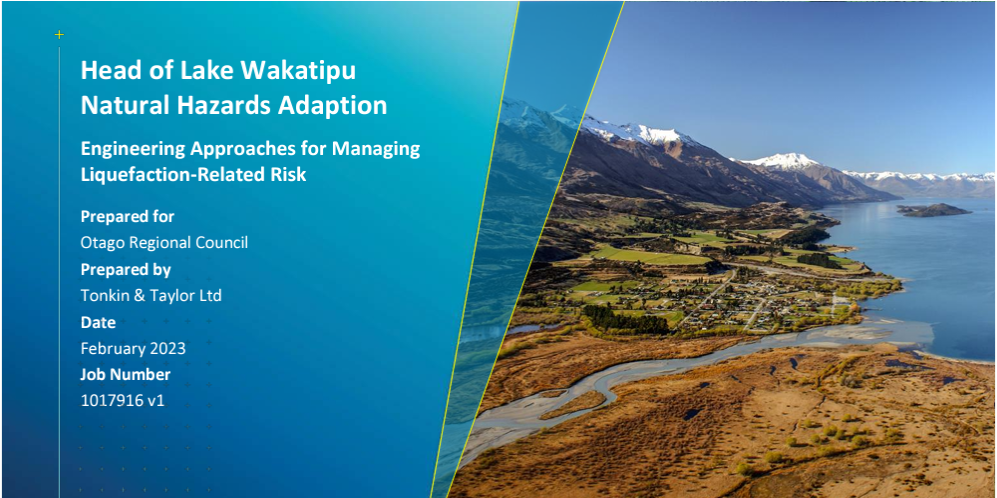Otago Regional Council’s Manager Natural Hazards Jean-Luc Payan says this assessment is key to informing the Head of Lake Whakatipu Natural Hazards Adaptation Programme.
“This key piece of work builds on the technical studies and community engagement we have undertaken so far and helps us understand how adaptation can help enhance community resilience. It gathers information on the social and economic baseline of the community and explores how social and economic wellbeing could be impacted by natural hazard events. This includes community cohesion and readiness, awareness of the hazards, the risks they present, and the ability to recover from a natural hazard event.”
Dr Payan says the community requested the report and helped to scope it through the Glenorchy Community Association as part of ORC’s broader programme to plan for and adapt to natural hazards at the Head of Lake Whakatipu.
“This study highlights the depth of local knowledge and resources in the community, and an already high-level of resilience, as well as some vulnerabilities. Adaptation planning is community-centred, so this report helps both the Council and community make more informed decisions about how to adapt.”
Glenorchy Community Association chair John Glover says, “It’s good to see this study capture and collate the lived experiences and knowledge base across the community at the head of the lake. We’re working as a community on a number of fronts to increase our readiness, resilience, and subsequent response to the natural hazards that all of us living here are very much aware of.”
Some key findings from the assessment include:
- There is a strong sense of community at the Head of Lake Whakatipu.
- The community has access to a wide range of skills, assets, and resources to support short-term response and recovery from natural hazard events.
- Medium- to long-term recovery would likely require some external support (i.e., when resources were exhausted).
- There are several vulnerable sectors of the community: those with high needs; tourists/visitors; people with multiple low-level, low-income jobs and unemployed; temporary workers; the older population; and young children and families who do not have wider family in the area.
- Access to and from Queenstown and within the local area is important for social and economic wellbeing.
- Newcomers to the community may not be as resilient in terms of readiness for natural hazards compared to residents with more experience of isolated times.
The results of the first phase of the socio-economic impact assessment for the Head of Lake Whakatipu will be presented to Otago Regional Council’s Safety and Resilience Committee on Wednesday 8 May.
The assessment report is included in the agenda here: www.orc.govt.nz/councilagenda.
ORC will also share the findings at an online community presentation on Wednesday, 22 May at 7pm. Details are here: https://www.facebook.com/events/264661326636436
Head of Lake Whakatipu Natural Hazards Adaptation Programme background
ORC, in collaboration with Queenstown Lakes District Council, iwi, Department of Conservation and the local community, is developing a Natural Hazards Adaptation Strategy for the Head of Lake Whakatipu area. The area and its communities are exposed to multiple natural hazard risks, including floods and earthquakes. The landscape is also dynamic and some of the risks are evolving over time. An ‘adaptation pathways’ framework called Dynamic Adaptive Planning Pathways is being used to develop the strategy. Find more information here: https://www.orc.govt.nz/holwMRmay2023

